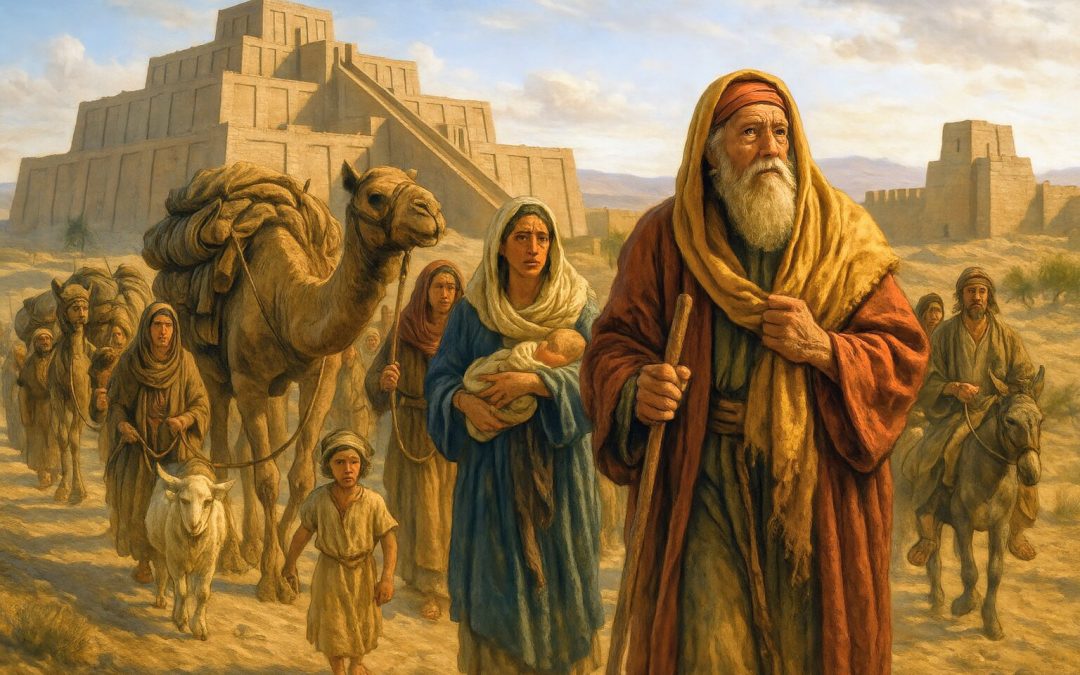Ancient Israel has a long and complex history. Solomon’s united kingdom of Israel (10th Century B.C.) was broken up when the ten northern tribes rebelled against Rehoboam, Solomon’s son. Eventually, the northern kingdom disappeared when the Assyrians took them into captivity in 722 B.C.
What remained were transplanted foreigners and a few Jews, who intermarried and became known as Samaritans. Because they were impure Jews, as defined by the tribe of Judah, Samaritans were generally despised. Samaritans had their own place of worship (Mount Gerizim), their own version of the Torah, and their own Messiah (called Taheb).
Samaritans played a key role in Jesus’ ministry: for example, a Samaritan served as a foil for religious Jews in the parable of the Good Samaritan. The Samaritan showed love and compassion to a badly beaten man found on the road to Jericho, while a priest and a Levite passed him by. The Samaritan fulfilled God’s second greatest commandment (to love one’s neighbor), but the supposed chosen people did not. (See Luke 10:30-35.)
A Samaritan woman is another important example. Travel from Jerusalem to Galilee required crossing the region of Samaria, and it is there that Jesus meets the woman at the well (see John 4). In the course of their conversation, the Samaritan woman brings up the dispute over the proper place of worship, Mount Gerizim or Jerusalem. Jesus responds directly and factually by indicating that the Samaritan religion was meritless. They didn’t really know what they worshiped, in contrast to the Jews, who did know, for salvation is of the Jews! The woman must have been shocked and offended to hear this!
These stories have important implications for Christians today.
Christians must recognize the true nature of their faith. Christianity is the fulfillment of Judaism. It has the same laws, the same means of salvation, the same holy book. Before a word was written by the apostles to be read by the churches, believers consulted the only authoritative text they had, the Law and the Prophets, which we know as the Old Testament.
The Bereans are commended in Acts 17 for their careful, daily study of the Scriptures (our Old Testament) to confirm the gospel message brought by Paul and Silas. This behavior says a lot! The Old Testament is the foundation for the New Testament. The new covenant is simply the everlasting covenant God made with Abraham long ago.
Scripture says that the covenant God made with Abraham (the covenant of circumcision) was based on faith. Gen. 15:6 says, “And [Abraham] believed in the LORD, and He accounted it to him for righteousness.” Later, God commends Abraham for his obedience: “Abraham obeyed My voice and kept My charge, My commandments, My statutes, and My laws” (Gen. 25:5).
Jesus confirmed the continued validity of God’s law (see Matt. 5-7), as did the Apostle Paul. Rom. 3:31 says, “Do we then make void the law through faith? Certainly not! On the contrary, we establish the law.”
The Christian attitude toward the law differs from the Jewish attitude only in that Jews looked forward to the Savior’s sacrifice and Christians look back at the Savior’s sacrifice and resurrection. Both Jews and Gentiles are saved the same way–by faith in the merits of the sacrificial Lamb of God, Jesus the Christ. Of course, Jews of old as well as Christians today can think that their own law keeping will save them. But the law saves no one. It shows believers their need of a Savior.
How does this discussion relate to Catholicism? Upon examination, it is clear that the Roman Church has a different god, a different savior, and a different law than that found in the Bible. Catholicism is not built on the promises made to Abraham; instead, the Church is built on a pebble named Peter, a common sinner saved by the merits of his master, Jesus Christ, the true Rock.
Over the centuries, papal Rome was gradually infiltrated by pagan beliefs and practices nowhere taught in Scripture. From pagan Greece (specifically, Plato), Rome took the unbiblical notion of the immortality of the soul, and thus an eternally burning hell, a doctrine that has horrified millions of people into a rejection of the idea of a loving, merciful God. From pagan Rome, papal Rome took the day of the sun, or Sunday, in place of the Sabbath of the 4th commandment of God’s eternal law.
The Roman god burns heretics, creates his own law (Tradition), justifies by works, makes salvation an odious matter of prescribed rituals, acts of penance, and a conglomeration of untold numbers of venerations, pilgrimages, and tiresome prayers. The God of the Bible requires none of these things.
Roman Catholicism as a system, along with all other fallen churches that are the children of the Great Prostitute of Rev. 17, are doomed to destruction. This destruction is not meant for the faithful people within each fallen church. Jesus calls to them now, “Come out of her, my people!”
Those who remain committed to the precepts of Babylon, precepts that are of demonic origin, will suffer the punishment of Babylon. Why? Because they reject the call to come out of Babylon when it is doomed to destruction. God does not force anyone to choose His ways; instead, after millennia of warnings, God will bring the present world to a dramatic end–including all who are “of the world.”
The suffering and pain, the death and sorrow, brought on by rebellion against God’s law, have had their run. Behold, God will make all things new!

